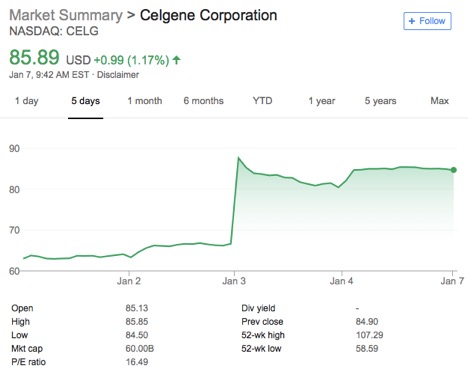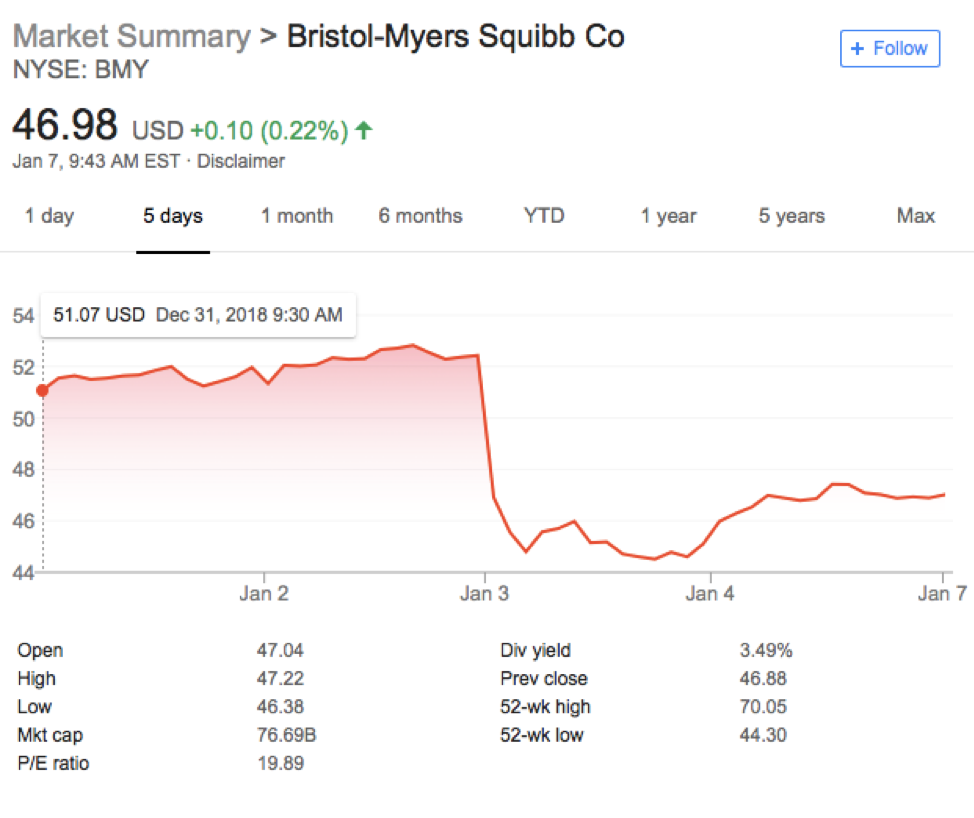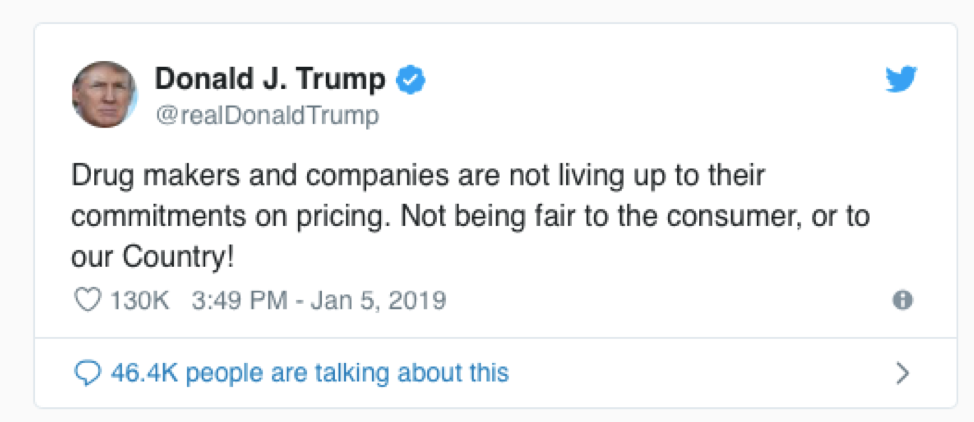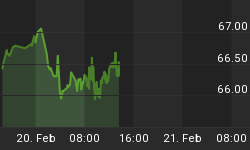The announcement last week that Bristol-Myers Squibb will acquire drugmaker Celgene in a $74-billion deal is a big bet on a line-up of cancer drugs as 2019 ushers in a push to raise the price of over 1,000 medications and earns the industry a great deal of scrutiny in Washington.
Shares of Celgene spiked on the news Thursday, while Bristol’s flopped.

(Click to enlarge)

(Click to enlarge)
Based on the deal, Celgene shareholders will get one Bristol-Myers Squibb share and $50 in cash for each share held, or $102.43 per share, a premium of 53.7 percent to Celgene’s Wednesday close. For Celgene it is being viewed as a huge win—and a payoff for all the work it’s done on cancer drugs.
It’s also a great reprieve from major headaches the drugmaker has had this year, including the loss of patent protection for its top-selling multiple myeloma drug as of 2022. But while investors were worried enough to have stripped over 37 percent from Celgene stock this year, the Bristol acquisition has reversed that nicely, with a 28-percent gain on Thursday.
All in all, Bristol will now have a lineup of nine products that bring in more than $1 billion in annual sales—plus, it’s getting a boost in growth potential.
Based on Axios figures, the combined company will be worth $150 billion and move up to the 6th-largest pharma company in the world. Related: Survey: Few Would Give Up Facebook Without Getting Paid
It’s a big merger at a big time for pharma’s bet on cancer, but it’s also going to be a year of immense pressure on the industry over major price hikes.
According to analysts by Rx Savings Solutions, over 60 drug companies ushered in the New Year with big price hikes on hundreds of drugs, beginning on 1 January. In total so far this year (which we’re only a week into), drug companies have hiked prices by 6.3 percent on average, with Allergan PLC pushing a nearly 10-percent increase on more than two dozen drugs, the Wall Street Journal reported, citing the Rx Savings Solutions analysis.
So far this year, we’ve seen 133.4-percent increase in 7T Pharma’s Zingo drug for numbing skin prior to drawing blood; a 30.1-percent increase in Hikma Pharmaceuticals’ Enalaprilat drug for high blood pressure treatment; a 20-percent increase in Hikma’s Ketamine anesthetic; and a 9.5-percent hike in Allegran USA’s Bystolic high blood pressure drug, among a list of others.
The U.S. was already playing a much different drug ball game than anywhere else, allowing the pharma industry to run amuck in the healthcare sector, with no regulation or negotiation of prices for new drugs.
Still, Allegran, for one, says it doesn’t expect to profit wildly from its price hikes thanks to insurance companies.
“In 2019, we expect to realize 0% net increase in our drug prices as increased rebates and discounts paid to insurers, PBMs and government programs are continuing to grow. These rebates and discounts are paid to ensure access to our products and, ideally, lower their out of pocket expenditures,” said Brent Saunders, Allergan’s chairman and CEO, in a statement to ThinkProgress.
Washington’s next move, however, is mired in a government shutdown, despite the fact that Trump campaigned on this.
On Friday, Trump took to Twitter (the temporary government while the real one is shut down), to remind Big Pharma that’s he still on this warpath:

(Click to enlarge)
The timing isn’t just about the January 1st price increases, either. It coincides with a big gathering of pharma execs and investors at the annual JPMorgan Healthcare Conference in San Francisco from Monday through Thursday. This is where a lot of potential deal-making goes down and product updates are revealed.
Related: Bitcoin Goes Back To The Basics In 2019
But no matter how high they hike prices, the pharma industry will never look like the tech industry, whereas Axios points out—the $150-billion market cap that Bristol just earned with its Celgene merger is peanuts.
While the top 10 tech companies account for 41 percent of the sector, according to Axios, they only account for 29 percent in the pharma sector because it’s a constant struggle to stay on the top with new drugs and endless research and development.
And now, they are caught in a tough spot between pleasing both Trump and Wall Street and their entirely different agendas. If this ends up goes beyond public shaming on Twitter, big pharma’s sell-by date may be even shorter—with or without mega-mergers.
By Fred Dunkley for Safehaven.com
More Top Reads From Safehaven.com

















